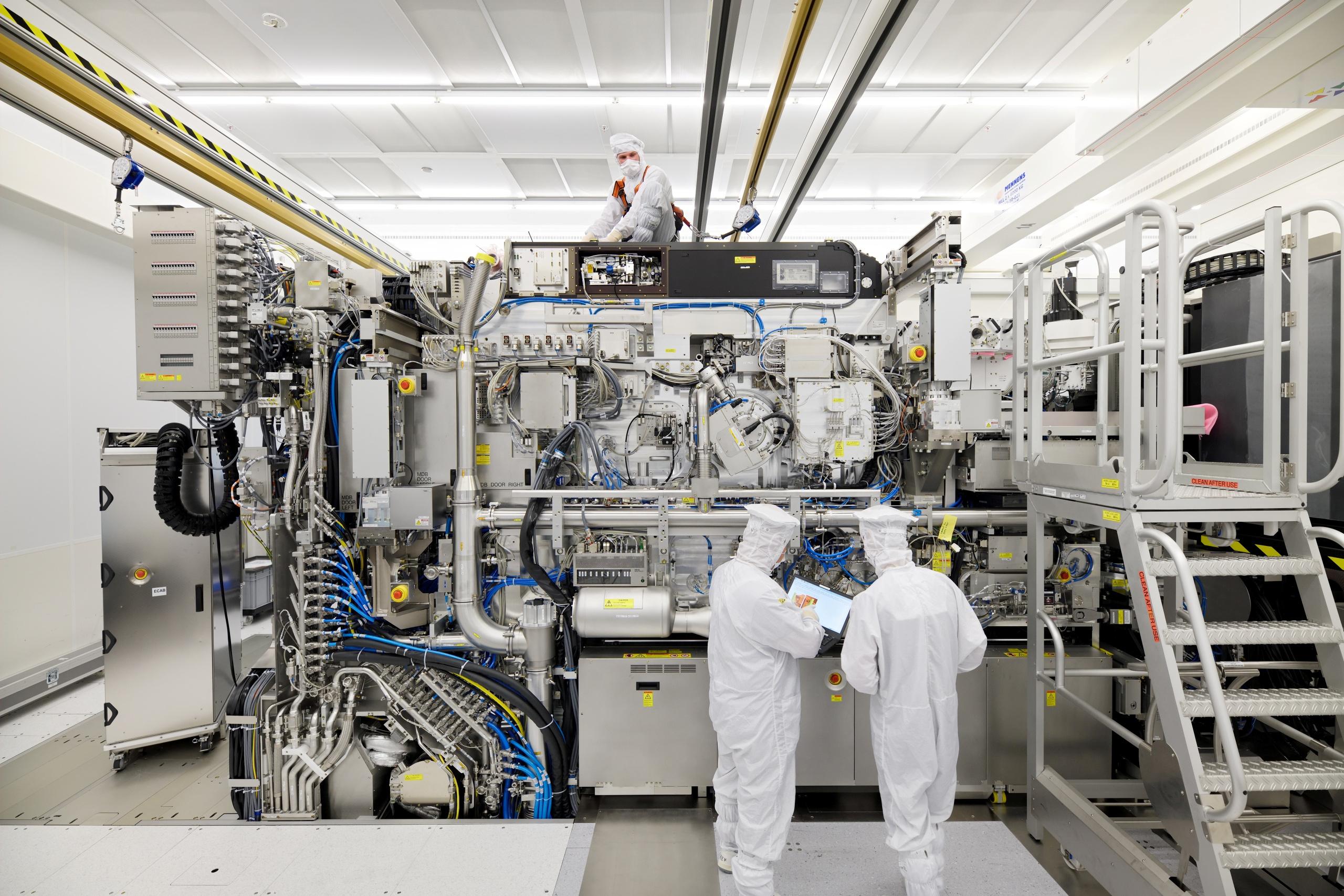

ASML's TWINSCAN NXE:3400B semiconductor lithography tool. Image credit: ASML
Japan’s Kyocera is to expand its investment in semiconductors, increasing capital investment and research and development expenditure to 1.3 trillion yen ($9.78bn, £8.1bn) over the three fiscal years starting in March 2023 through March 2026, news daily Nikkei reported.
The figure roughly doubles the amount spent during the previous three years to March 2023, and comes as countries around the world look to diversify the semiconductor supply chain following years of disruption.
To fund the investment electronics and ceramics maker Kyocera is looking to borrow up to 1 trillion yen, pledging its 15 percent stake in telecommunications firm KDDI as collateral, something it has never previously done, Kyocera president Hideo Tanimoto told the paper.
TSMC, the world’s biggest contract chipmaker, is currently building a chip fabrication plant in southern Japan with Sony.
Yoshihiro Seki, a senior politician within Japan’s ruling Liberal Democratic Party, was reported as saying on Friday that TSMC was “looking into further investments in Japan” and urged the government to create a favourable environment for them to do so.
Japan’s semiconductor industry accounted for more than half of the global market by revenue in the late 1980s, but has since fallen to less than 10 percent as production has concentrated in mainland China and Taiwan.
TSMC said it did not rule out any possibility for Japan but that there were as yet no concrete plans for an additional plant.
The Taiwanese company is also reported to be in advanced talks to build its first European plant in Dresden to supply chips for the auto industry.
The Financial Times said TSMC was sending an executive team to Germany in early 2023 to assess the level of government support for the project as well as the capacity of the local supply chain to meet the plant’s needs.
The plant would require billions in investment and construction could begin as early as 2024.
Intel has committed to building a 17 billion euro (£15bn) plant in the city of Magdeburg but has asked for additional German government support due to rising costs.
The EU earlier this year approved 43bn euros in subsidies to attract chipmakers, while the US’ Chips Act, passed in July, makes available some $200bn in investment into domestic chipmaking.
Notable development for Meta, after appeal against 2021 WhatsApp privacy fine is backed by advisor…
First sign of shakeup under new CEO Lip-Bu Tan? Three Intel board members confirm they…
Trump's nominee for SEC Chairman, Paul Atkins, has pledged a “rational, coherent, and principled approach”…
After being 'retired' by Intel's board of directors, ex-CEO Pat Gelsinger has joined a VC…
President touts easing Chinese tariffs to facilitate TikTok sale, and also implements 25 percent tariff…
Copyright lawsuit against OpenAI and Microsoft from The New York Times and other newspapers can…